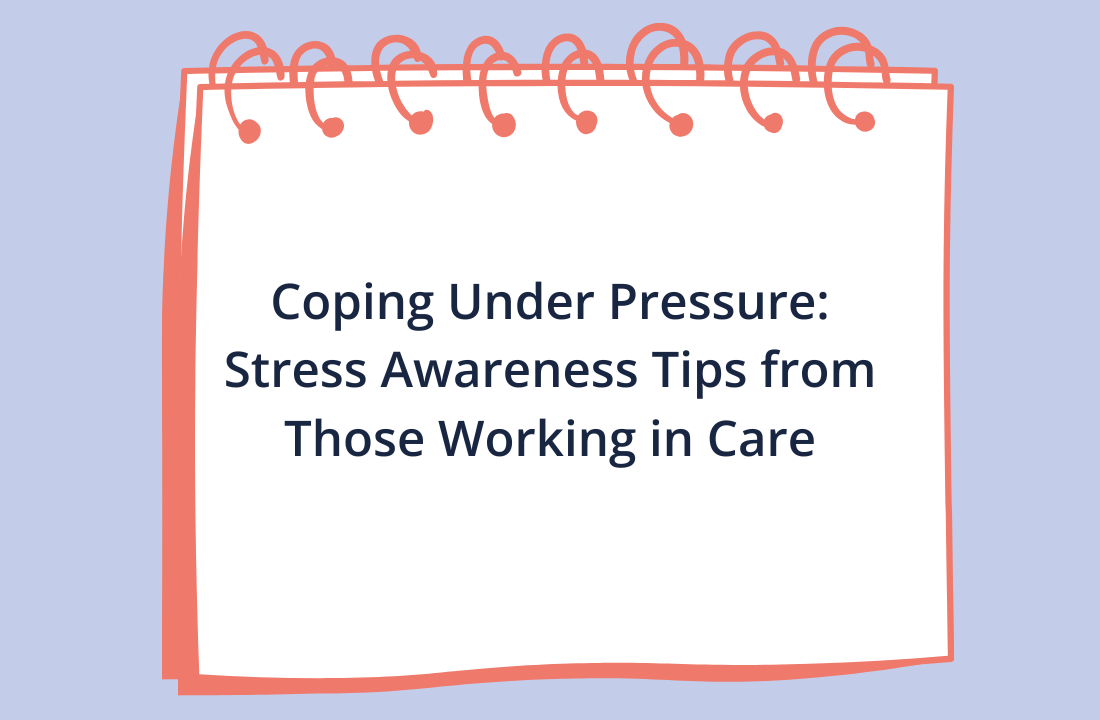Working in healthcare means facing pressure every single day – from long shifts and emotional demands to the constant need for compassion and precision. For those on the frontline, managing stress isn’t just helpful – it’s essential.
As part of our April campaign for Stress Awareness Month, we asked our healthcare professionals to share the real strategies they use to cope under pressure. The result? Practical, honest, and powerful tips from people who know what it’s like to care for others in high-stress environments.
What is stress and why is it so common in the healthcare industry?
Stress is a natural physical and emotional reaction to challenging or demanding situations. In small doses, it can motivate us to perform. But when prolonged or overwhelming, it can lead to burnout, anxiety, fatigue, and poor decision-making.
For healthcare professionals, the causes of stress are varied – understaffing, emotional intensity, high workloads, and the responsibility of patient care can all contribute. When left unchecked, stress can affect both wellbeing and the quality of care provided.
That’s why knowing how to manage pressure – and supporting one another in doing so – is vital for those working in care.
Tips from our healthcare professionals
We asked members of our healthcare team to share what helps them most when stress starts to build. Here’s what they told us:
Mike’s Tips
“One thing that l do that helps to manage stress is to always get up earlier than l really need to. This means that instead of riding the snooze button l have time to myself to read or watch some TV with my breakfast.”
Starting the day with calm, rather than chaos, is one of the most effective ways to reduce stress. Mike’s routine allows for gentle mental preparation and gives him valuable time for himself before the demands of the day begin.
Alex’s Tips
“I prioritise eating healthy food and sleep well to recover and go again. I do regular exercise and long hours in the bath tub after exercise. I play football and watch movies, then read books to exercise my brain and mind if I have a long time off.”
Alex highlights a holistic approach to stress relief – balancing physical care with rest and recreation. His routine covers all areas of wellbeing: nutrition, movement, sleep, and mental stimulation, all of which are crucial for resilience in high-pressure roles.
Kavitha’s Tips
“One of my top tips for handling stress in high-pressure environments is practicing mindful breathing, even for just a few minutes during breaks. It helps calm the mind and brings focus back. I also find that having a short walk outside, when possible, refreshes me and reduces the mental load. Additionally, I try to maintain a simple self-care routine after work—like listening to music, watching a light-hearted movie, or speaking to family – which helps me recharge for the next day.”
Kavitha’s techniques show the value of small, consistent habits throughout the day. From mindful breathing to gentle post-work rituals, her advice is a reminder that stress management doesn’t always require large blocks of time – just intentional and restorative moments.
Steve’s Tips
“I’m very thankful that I learned to meditate about 30 years ago, so I try to do that daily. Twice, daily is the ideal. I don’t always manage twice daily, but just taking a little bit of time out for myself to sit down, to reflect, and to keep open, to keep talking with people, has been key.”
With decades of experience, Steve shares the importance of reflection and connection. His focus on meditation and staying open in conversation underlines the emotional aspect of stress – something that can’t be overlooked in healthcare.
Understanding the bigger picture: Facts about stress
According to the Mental Health Foundation , 74% of UK adults have felt overwhelmed or unable to cope at some point due to stress.
Long-term stress can lead to physical issues like high blood pressure, weakened immunity, and sleep disruption, as well as mental health conditions such as anxiety and depression.
Supportive workplace cultures, early intervention, and education on stress management are shown to improve wellbeing and staff retention in the care sector.
Want to hear more?
To explore the topic further, we recommend listening to our Jane Lewis: Let’s Talk podcast episode on Stress Awareness. In this conversation, Steve (our longest-serving nurse) and Nadia (North Wales Branch Manager) discuss real experiences, effective coping tools, and why conversations around stress matter now more than ever.




